
The Ministry: From Dance Music Temple to Creative Workspace

Whether you’re into dance music or not, the Ministry of Sound brand is iconic. Since it began in 1991, opening a pioneering nightclub in a neglected corner of South London, its logo has become a famous emblem for the genre - adorning the covers of the dozens of compilation albums it’s turned out over almost three decades.
Although still one of the few true superclubs in the British capital, the record label they started was acquired by Sony a couple of years ago and ever since the brand has been looking into new options.
They soon found a problem they were keen to solve. “WeWork have been an unwelcome import to these shores, pushing bland decor, warm beer taps, crap coffee, bland decor and inflexible contracts,” reads a statement from the brand announcing its new venture.
Located in a vast former printing works built in the 1860s, a stone’s throw from the original club in London’s Elephant & Castle, the Ministry draws on the brand’s creative past, focusing on combining usable workspace with amenities designed specifically for those in the creative sectors.
Now open for business, the space boasts a seventy-foot bar spanning the entire ground floor, an immersive technology studio, 36-seater cinema, sound-proof production suites, events space, restaurant and year-round outdoor courtyard.
LBB’s Alex Reeves asked the Ministry’s creative director, Simon Moore, how he and his team channeled the brand’s spirit into this new project.
LBB> What, for you, is the most important thing about Ministry of Sound’s history as a brand?
SM> The history of Ministry of Sound is one of doing things differently. Looking at what other people do and addressing that, trying to do things in a slightly more unusual way.
That’s actually how the club started in the first place. There were obviously other nightclubs in London in the ‘80s and early ‘90s, but there weren’t any that were purpose-built for sound, for dance music. Dance music at the time was just being played in old gyms and leisure centres and stuff like that. There wasn’t any home for it.
Justin [Berkmann] and James [Palumbo] - the founders of the business - realised that in New York you have loads of wonderful clubs and that there had been since the ‘70s. There was nothing like that in London at all. So they were like: ‘let’s make one.’ It wasn’t because no one was doing nightclubs. It was no one was doing them well.
LBB> What would you say are the key moments in the history of the Ministry of Sound brand? And what do you think they say about the company?
SM> Opening it in the first place because nobody had done anything like this before. When it opened it was just in an old bus garage in a forgotten and unloved corner of south London. They did it really simply and just found this amazing space.
Justin’s original idea for the whole project was that it’s all about sound. Design and everything else came second. What they were interested in was basically creating this perfect environment for listening to dance music. All of the money went into the sound system, into building this room which is the equivalent of a Royal Albert Hall for dance music. Everything in there is designed to make the sound perfect. Once that opened it created such a landmark moment in the cultural history of London.
Launching a record label off the back of the club in the mid-to-late ‘90s was a very bold move. I think they’d seen a few other major labels try and put out some records and not do them in a particularly authentic fashion. So they were like, again ‘they’re not doing it the right way. So we’ll do it.’ They created the first of these powerful super-club dance music compilations - The Annual. Everybody then started copying them and the whole record label snowballed off the back of that and became this huge entity, which got bought by Sony [in 2017 for £67 million].
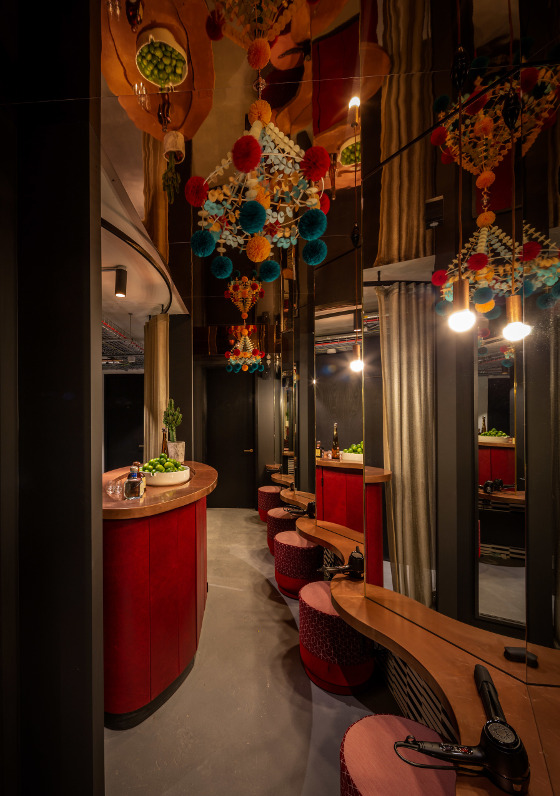
LBB> Fast-forward to 2018. Why has Ministry of Sound decided to create The Ministry?
SM> Ministry of Sound has been around for 27 years. And having sold the record company to Sony they were looking for other businesses to get involved in and new directions to take the company. There was a load of empty space in the office. So they thought they’d see if anyone is interested in taking some desks. It all kind of snowballed from there.
As a business they’ve been in the creative industries for this length of time and have built a hugely successful business off the back of the culture they have and their work ethic.
I think they just felt that everyone’s doing this wrong. It came from that realisation that everyone said they were building workspaces for creative people but they weren’t. They were actually just very functional spaces where you have a desk and you go there and spend eight hours of your day in the same place. If you’re a designer or an architect or in PR or a musician, that isn’t how you work. You move around, change your environment, change your stimulus depending on the task you’ve got. Work is a very social thing if you're in that industry. A lot of work is done in pubs, bars and restaurants - out.
The idea is to take that knowledge of how people work in this industry and try to build the perfect environment for creative people to work in. The same logic that inspired the club in the first place in a completely different industry.
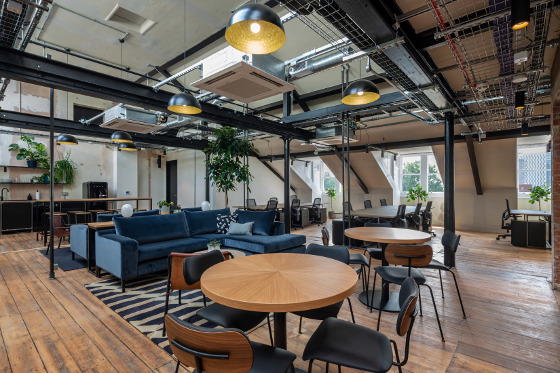
LBB> How have you incorporated that history into this project?
SM> When I got involved in this project one of the things I really wanted to do was ensure that what we did was inspired by the history of Ministry of Sound but not in an obvious way. It was certainly not a case of making it like a Hard Rock cafe with memorabilia and logos everywhere.
What I wanted to do was find out what the key creative moments were. Once you do that you start to spot that they actually did things very differently from everyone else. There was a real boldness, simplicity and punchiness to all their activity. They were quite provocative in their tone of voice. There was nothing fussy, detailed, ornate, messy or contrived. There was a purity, simplicity and authenticity to everything, which was actually very different to what everyone else was doing.
Looking at the club as well - the idea was super simple. And if you go to the club now it hasn’t changed. When you do something that’s not about gimmicks, trends and fads - it’s about doing a simple idea really well - you don’t need to change that. And that all inspires what we’re doing here. We’re doing things that are really stripped back, super raw, very authentic - no fake anything. There are no patterns everywhere. No logos.
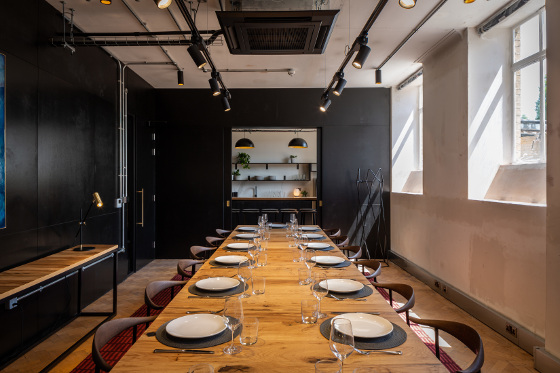
LBB> How does the idea of the brand tie in to that of a private members’ club?
SM> The mechanism for opening this place is all invite-only. Which is how the club started. You could only go if you’d been specifically invited by one of the founders, a DJ or something like that. It was super exclusive. All the fliers had a logo on and nothing else. No one knew where it was or how to go there. Very secretive. To be able to go to the club in those first years was an extraordinary achievement. Everybody was trying to go and everybody was being turned away. That also inspired what we’re doing with this. It’s not for everybody. It’s only for the people who we feel are going to get on with each other and benefit each other’s lives and careers.
That idea of the original Ministry of Sound - building a tight-knit, very selective, curated community - was the foundation on which the brand was built because they were all people who grew with each other. That logic is very much behind this idea of a members club. What Ministry’s always been good at is curating stuff, whether it’s music or DJs - the idea for curating a community of creative people, I think, makes a lot of sense.
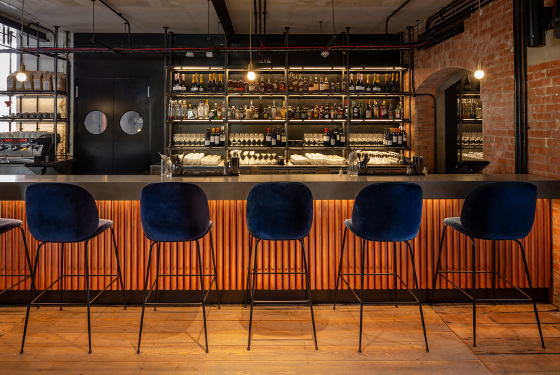
LBB> How are you making sure you build the sort of community that’s right for the brand?
SM> It’s not something we’re paying lip service to. We’ve had applications from people who work in other industries and they’ve all been turned down.
It’s creative businesses. Not just designers - people who have ideas and challenge things. There are a lot of companies doing very interesting tech stuff. I’m astonished by some of the stuff these companies are doing. Music tech in VR, and AI - a lot of companies from those sorts of industries are coming in. A lot of people could look at that and think it’s not a traditional creative business. But for us it is. If you’re doing something new, having ideas and challenging the establishment, that’s creative.
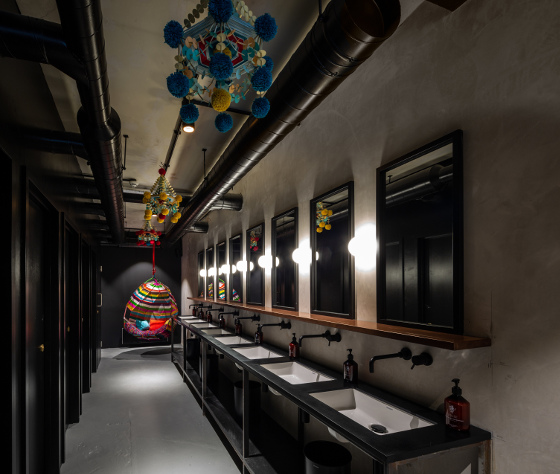
LBB> Can you talk a bit about Elephant and Castle? It’s a part of London that the brand is so deeply tied to.
SM> Ministry is associated with Elephant and Castle so closely. There’s a fondness for the area. It’s been good to Ministry over the years. There’s nothing else in Elephant and Castle. When you think of one you think of the other. When the idea for this project first started, that was what we wanted to do. We were very clear about doing the first one in South London because that’s our home. It feels right to do that. The plan is to do more, maybe even more in South London. If you’re a football club and you’re rebuilding your stadium, you don’t do it too far away from where the original was.
South London is massively under-served for stuff like this. So many of my friends in creative jobs all now live in South London, whether that’s Peckham or Greenwich or Herne Hill - all of these places are full to the brim with interesting people but they have to go north of the river to do anything like this. That felt wrong.
Look at that great Nike advert about London earlier this year - what I thought was fascinating about that was the vast majority of the references for that and the people in it were South London. I think a lot of people apologise. That’s wrong. What’s positive for this is that it’s in South London. I think that’s a big deal. No one’s done this here before, even remotely close.
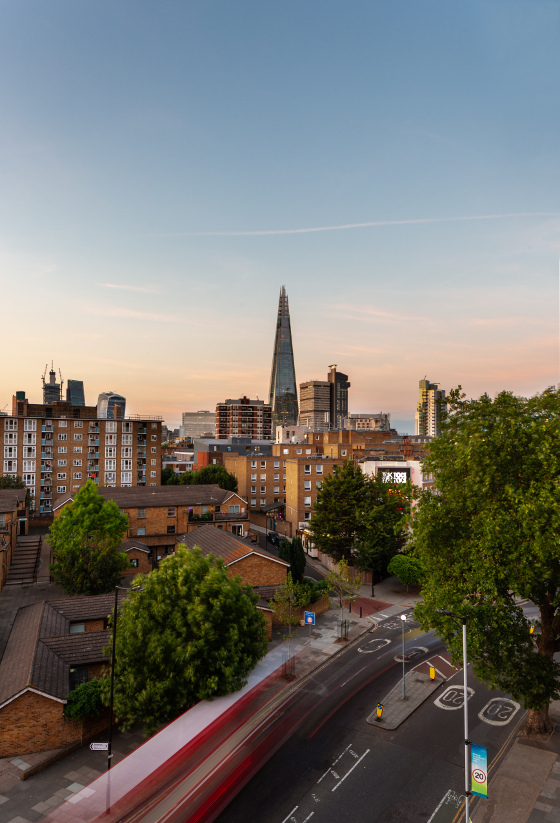
LBB> How did you create the new brand of the Ministry from that heritage of the Ministry of Sound?
SM> We really wanted to make sure that the brand we were creating had a relevance to Ministry of Sound but not a slavish replication of it. Once we got that I felt we could create something that had an intrinsic link back to Ministry of Sound without being really obvious about it.
That was a challenge. How do you create a new brand that’s so closely linked to an existing brand? How do you make it stand apart? How do you do something different that is effectively for different people but has a clear link between the two?
I felt we did it by inheriting these attributes, whether they’re visual, tone of voice or any of these things - they’re imbued into this new thing. But we’re doing a lot of things quite opposite.
A lot of people will know the brand and the logo - it’s the first thing that’ll pop into people’s heads when you say Ministry of Sound. As a brand it’s been heavy on its branding over the years. That logo is at the centre of everything. People would probably be expecting something similar from this and actually we’re doing the total opposite. We’re doing it with an almost unbranded philosophy. There’s no signage outside the building. No logos. We don’t use the name anywhere. The only time you see the name is on a website or if someone speaks it.
We’re making a virtue of anonymity. It felt quite cool and confident. But we also put ourselves in the mindset of anyone who wanted to take space in the building. They’re people who’re building brands of their own. If you work at a WeWork and you give an address out it’s your company at WeWork at this address. You don’t have any sense of ownership over your space. We’re doing the opposite. The building’s not named. If you take a space there you are in 79 Borough Road, not The Ministry, 79 Borough Road. We’re giving this over to everybody.













